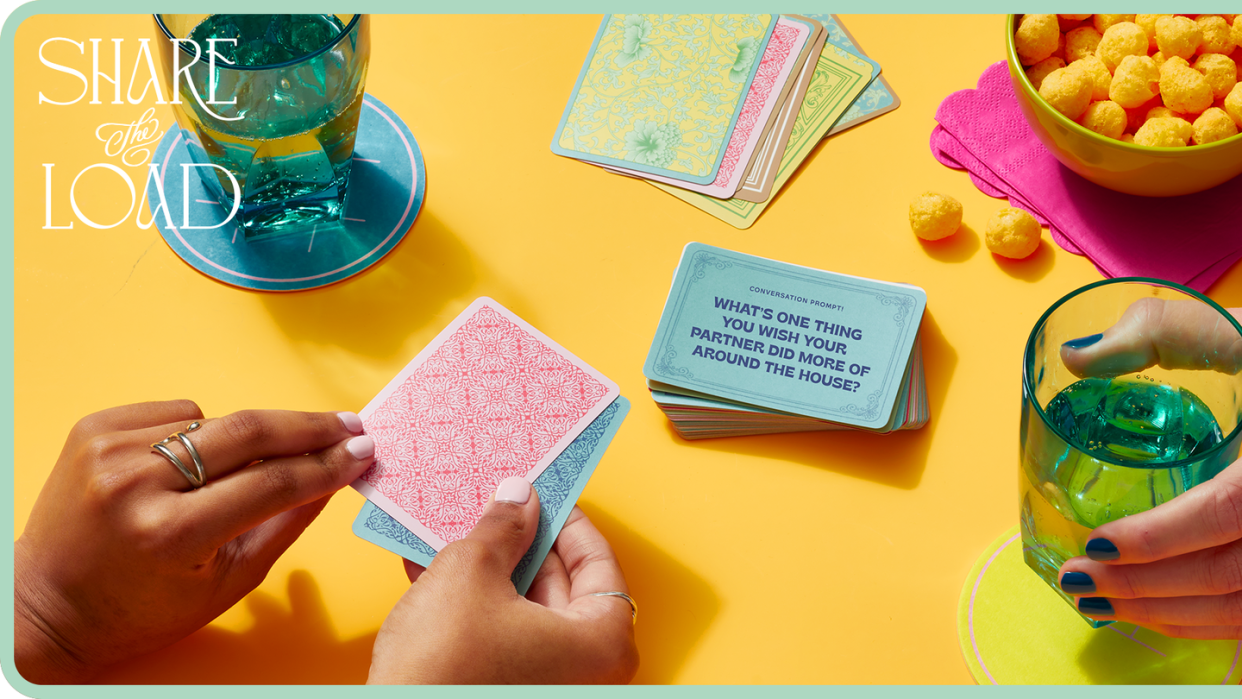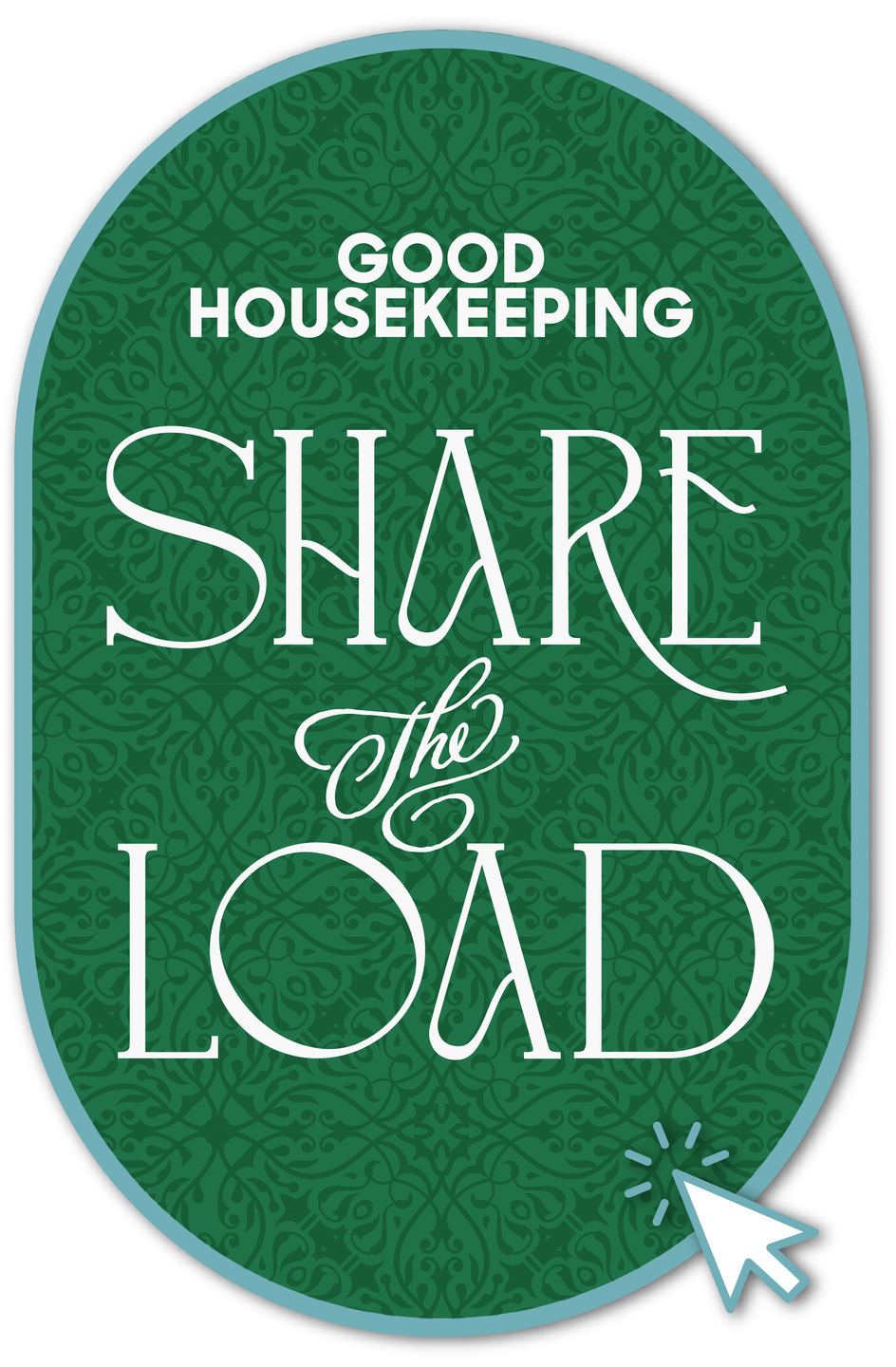The Parenting Lessons We Learned in Therapy


Recently, while venting about her parenting struggles, a friend paused to say, “You’re so lucky you’re married to a woman. Men can be such jerks!” (She may have used a word slightly saltier than “jerk.”) I had to burst her bubble: I may be a woman married to another woman, but my wife is not exempt from being a jerk — and neither am I. We both have our moments, especially as we deal with the stresses of co-parenting two young sons.
Still, some of our experiences of parenthood as a same-sex couple are distinct. For example, my wife and I each gave birth to one of our children. We’ve also lived our adult lives in LGBTQ+ communities that prioritize open, frequent communication in relationships. And we’ve been in therapy — lots of therapy. In short, our marriage and co-parenthood thrives on talking (and talking and talking).
While therapy wasn’t a part of my childhood — though I could’ve used it as a teenager! — by the time I was in my early 20s I’d already sought out mental health care, and so had most of my friends. At this point, as a fortysomething Brooklyn mom, I’d have a hard time thinking of a single friend who hasn’t had a therapist, at least through the toughest seasons of their lives.
So why is this experience so common among my peers? Part of the answer is that the stressors that come with being part of the LGBTQ+ community mean we often face mental health challenges. In fact, an American Psychiatric Association survey found that our community is more than twice as likely to suffer mental health disorders as non-LGBTQ+ people. While therapy is still a privilege not everyone can afford, my wife and I are lucky to have had access to it throughout our adult lives.
Our relationship is also shaped by the fact that, as two women, we’re less constrained by social expectations and gender roles than straight couples often are. This leaves us free to make our own priorities and our own norms. Since the early days of our relationship, we’ve been devoted to our own emotional development as individuals. While we cherish our relationship, we understand that we each have valuable unique identities to cultivate.
By the time Jenna and I got married in 2015, we had already been in couples’ therapy for years. Rather than looking at marriage as the beginning of something, we saw it as a celebration of the hard work we’d done to create a healthy relationship over six years together. Our therapist (who got a shout-out in our wedding vows) guided us through many tearful moments, reassuring us that we needed each other’s strengths. We learned that our relationship works because of our differences, not despite them. As our family grew, that became even more apparent.
When I was 39, I gave birth to our first son. I was a mostly-stay-at-home parent from the beginning, working for pay as a freelancer only occasionally. Meanwhile, Jenna’s career was just starting to hit full speed. I was amazed at her ambition and success, and also a little lonely as I weathered the postpartum months. As our therapist had often told us, “Two things can be true at the same time.”

For her part, Jenna felt overwhelmed by our new life, and a little at a loss as she learned to parent. As resentments grew — each of us feeling alienated by the other’s role — we knew where to turn for help. I eventually found the Motherhood Center, a postpartum mental health organization, and we returned (again) to our beloved therapist for guidance. I learned to seek out social interaction, because isolation was a huge anxiety trigger for me. I talked to parents and nannies who had spent years raising children, and found validation, support and ease. I learned that, no, I wouldn’t feel this way forever, that, yes, my baby would eventually sleep through the night, and that it was natural to mourn the loss of my life before kids — nearly everyone does, at least a little.
Five and a half years later, Jenna gave birth to our second child. Having been through it all myself, I felt ready to support her through her own pregnancy with a Costco-sized container of Tums, occasional foot rubs and very specific food requests. Still, when Jenna went into labor, the experience felt new to me. I’d wound up with an emergency c-section, but she ultimately avoided it. It was awe-inspiring to see her strength, and it gave me closure around my own seriously challenging birth. I was relieved to find I didn’t feel envy, just relief and joy that she and our son were healthy.
Today, that baby is a sweet blond guy with pink cheeks and lots of charisma. He’s more than 5 years younger than our oldest, and that sizable age gap has meant minimal sibling drama (so far). Even with all these blessings, as any parent of multiple children will tell you, the transition from one to two kids is no picnic. I found myself with divided attention, disrupted sleep and a shocking quantity of dirty laundry. Our first grader learned to read and play chess, bursting through the front door with new ideas and questions every day. But as our placid infant became a shrieking toddler, it became harder and harder to please everyone at the same time. I wondered whether I’d ever be able to really enjoy this golden pre-puberty era when my older son still wanted to hang out with me. There was another challenge too: In my toughest moments with our first baby, I could always count on the serotonin boost of breastfeeding. With our second, I struggled to find other ways to comfort and connect with him.

As time went on and tempers frayed, Jenna and I felt the same old resentments again. Having been through it all before, though, I remembered the words of our couples’ therapist, and reached out to find a therapist of my own. I retraced my steps through the early years with my first son, and asked for, and received, the breaks I desperately needed. And of course we talked, sometimes angrily, sometimes thoughtfully. Maybe most importantly, Jenna and I began to really watch each other parenting — with two kids, we were more often all at home together. We have paid closer attention to the enormous effort each of us puts into our children, and tried to remember to voice our gratitude. Even the smallest “thank you” goes a long way toward keeping our marriage and our family afloat. While I’m far from a perfect parent, a little perspective has kept me from getting stuck in the anger and resentment we all feel from time to time.
Though the tools and insights that come from therapy have been essential to our happiness, I know the idea of getting vulnerable still makes some people uncomfortable. But as we parent, we’re reminded of our own childhoods, for better and worse. We also encounter some of the most challenging work we’ll ever do. We can seek advice from professional therapists, or just a group of friends gathered in the backyard — ideally, both! But for the sake of our mental health, and our families’, every parent needs a consistent and ever-evolving community of listeners. We’re lucky to have one.
Photographs: Mike Garten. Prop Styling: Alex Mata. Design: Betsy Farrell.
You Might Also Like





